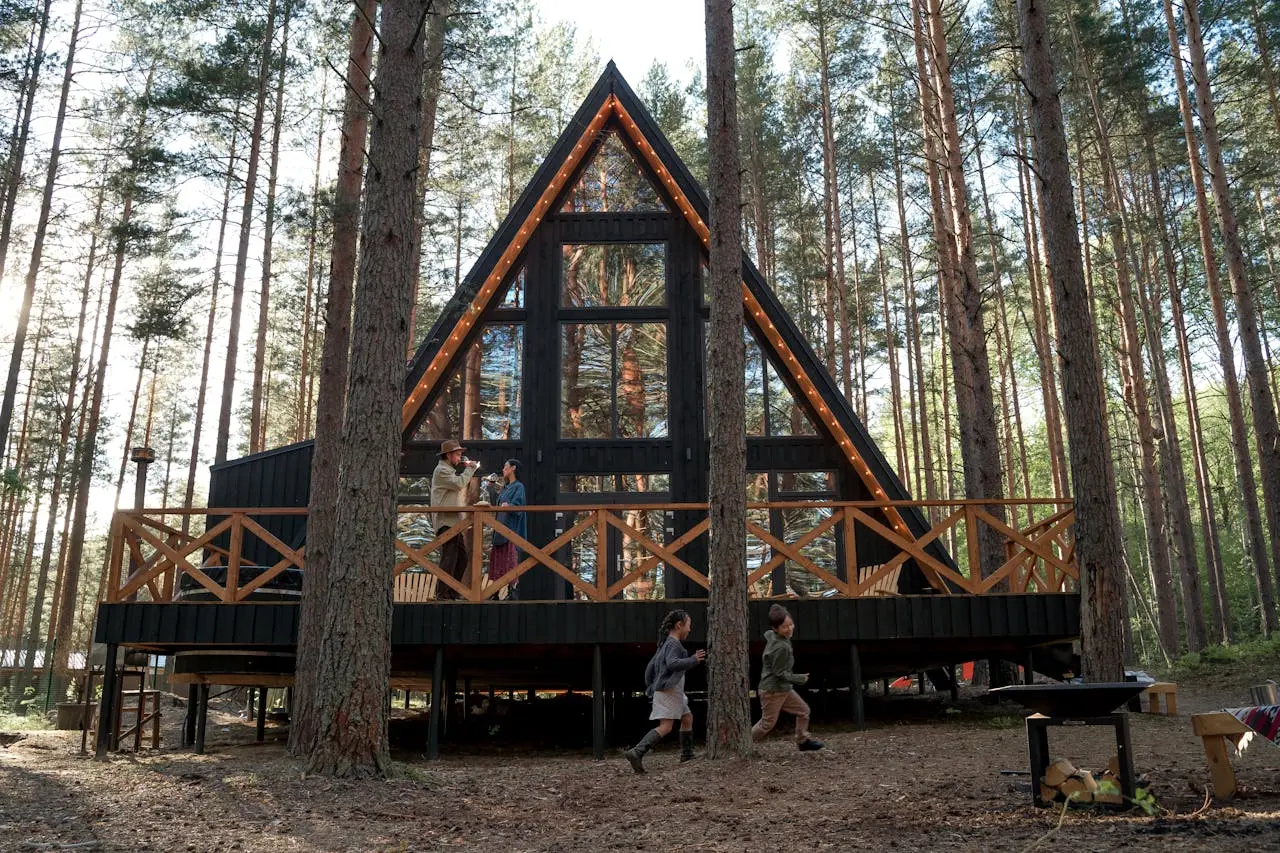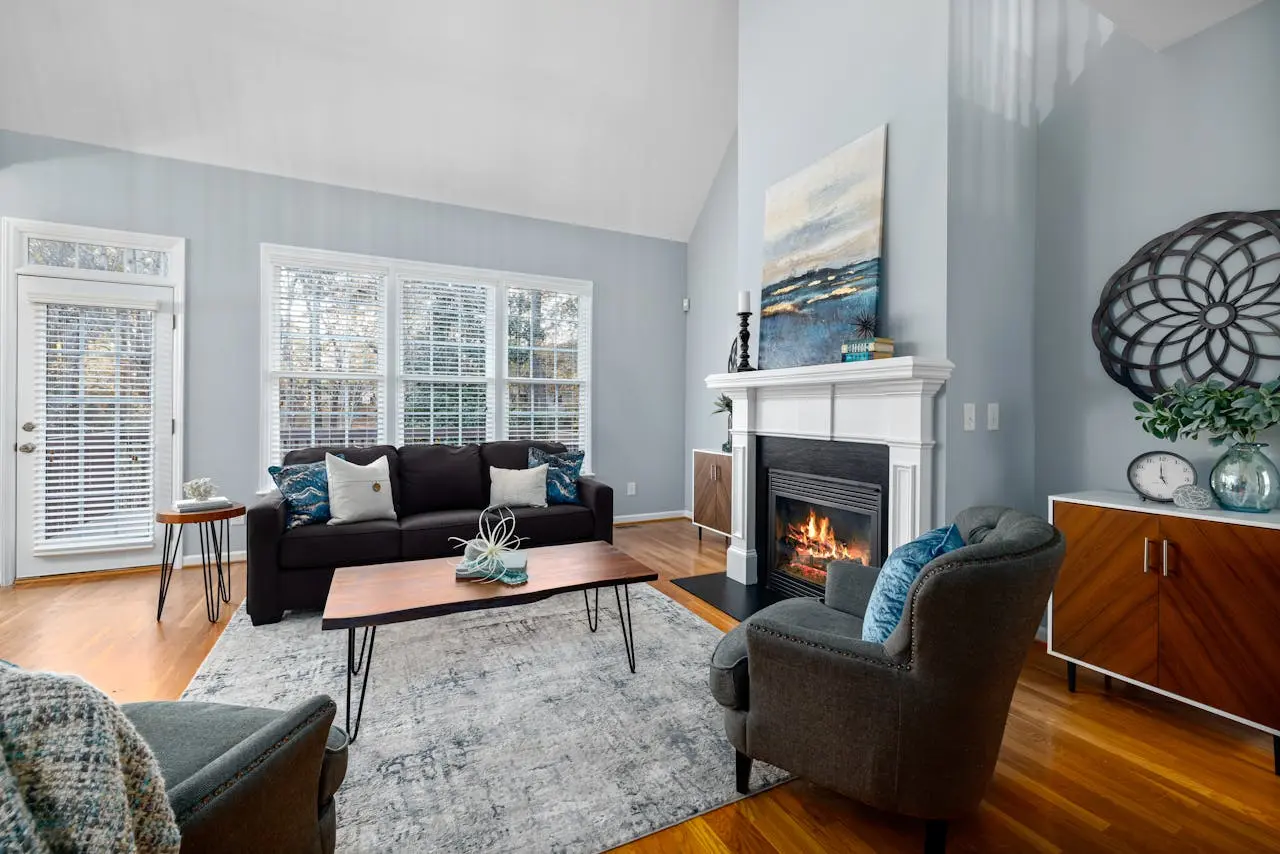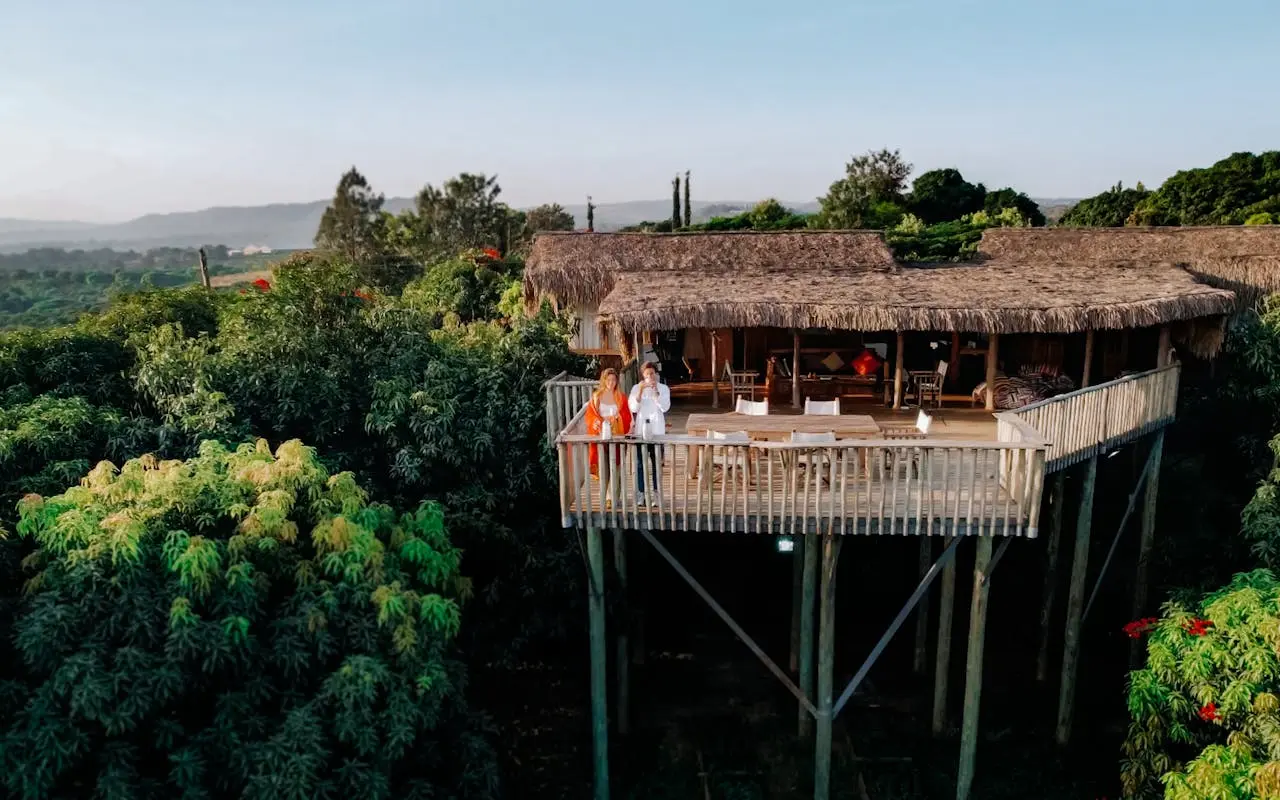
A vacation home as a business? 7 areas you need to know
More and more tourists, both domestic and foreign, are choosing an alternative to hotels – intimate, cozy holiday cottages for rent located in the mountains, by lakes, in forests, or even on the outskirts of large cities. Year by year, the number of property owners who decide to take advantage of the potential of their properties and start a seasonal rental business is growing. This is good news on the one hand – demand is increasing – but on the other hand, it also means more competition. Simply owning a cottage is not enough to succeed and attract guests, especially since seasonality requires maximizing the use of the season to earn enough to make year-round maintenance of the cottages profitable.
Today, a rental cottage is more than just a place to sleep. It’s a small but real business that – in order to be profitable – requires a well-thought-out strategy, proper preparation, and constant care for the quality of services provided. Guests have increasingly high expectations, compare offers, read reviews, and look not only for accommodation but also for unforgettable, positive experiences. So if you want your offer not to get lost in the crowd and actually generate income, you need to approach the topic professionally – just like running a company.
Professional property management is not just clean sheets and a key under the doormat. It’s many interrelated activities: from proper equipment and attractive presentation of the offer, through flexible pricing policy and booking automation, to skillful communication with guests and knowledge of legal basics. Fortunately, modern tools and proven methods come to the rescue, making the daily operation of a cottage easier.
In this article, we’ll show step by step how to manage a holiday cottage wisely. We will discuss 7 key areas that every owner should have under control to ensure their property is not only frequently rented but also stands out from the competition.
Regardless of whether you are just starting your rental journey or want to raise the level of your offer – these tips will help you operate more effectively, professionally, and profitably. Let’s start with the most important – guests.

1. Who is the holiday cottage for? Define your target group
Before you start promoting your holiday cottage, consider who you are targeting. Build a profile of your client, just like in any business plan. Not every guest has the same needs, and it’s impossible to create a completely universal offer. Families with children look for a safe environment, a playground, and kitchen access. Couples value a romantic atmosphere, privacy, and amenities like a jacuzzi or fireplace. Foreign tourists may expect information in English and suggestions for local attractions. Remote workers will appreciate stable Wi-Fi, a comfortable desk, and peace for working.
That’s why it’s worth creating a so-called customer persona – a fictional profile of the ideal guest. This helps tailor the offer, tone of communication, and even interior design. If you’re targeting families, you can provide high chairs or safety gates. If you’re aiming at digital nomads – consider adding an extra monitor or a coworking area.
Understanding the needs of a specific type of guest is key to effective promotion and positive reviews. You don’t have to be everything to everyone – just be the best for your target group.
2. Standard and equipment – how to increase guest comfort in your holiday cottage
Basic equipment is now an absolute standard – guests expect clean bedding, towels, a well-equipped kitchen, and working heating. But it’s the extras that make the cottage memorable and stand out. A hammock in the garden, a grill, atmospheric lighting, a smart TV with Netflix, or a coffee machine with local beans – such details matter greatly.
First impressions are equally important. A rental cottage should be not only clean but also neatly prepared: the smell of freshness, flowers on the table, a picture or figurine on the dresser can create a mood that guests will remember. Attention to interior preparation shows a professional approach and respect for the guest.
It’s worth regularly updating equipment, avoiding worn-out decorations or wilted flowers. To reduce the work of decorating, you can invest in dried bouquets or beautiful potted plants. Efforts to improve guest comfort directly translate into positive reviews and return visits.
3. Effective online promotion of a rental cottage
A well-prepared offer is the foundation of success in any type of rental. Guests first “buy with their eyes” – therefore high-quality, realistic photos are a must. It’s best to take them in natural light, showing not only the interiors but also the surroundings of the cottage. If you lack experience, it’s worth investing in a photographer specializing in real estate.
The property description should combine facts with emotions. Instead of “4-person cottage with kitchen”, it’s better to write: “Cozy cottage perfect for a family holiday, with a spacious kitchen and forest view.” The language of the offer should match the target group: families, couples, or remote workers.
It’s also worth running active profiles on booking platforms and social media. Regular content updates, responding to inquiries, and building online relationships translate into trust and bookings.

4. Pricing and revenue strategy – how to earn more without losing guests
Setting a rental price is quite a challenge. A price too high will scare off guests, too low will reduce profitability. The key is flexibility – adjusting rates to the season, local events, weather forecasts, or occupancy level.
Consider introducing discounts for longer stays, weekend packages, or promotions for returning guests. Additional services, such as a campfire with prepared wood, bike rental, or private sauna access, can generate extra income without changing the base price of the cottage.
The most important thing is to track results and react quickly. A simple pricing management system, even in the form of a spreadsheet or app, allows better control of revenue and optimization of the strategy.
5. Managing cottage rental – save time through automation
Managing bookings, guest inquiries, cleaning, or settlements can be time-consuming. That’s why more and more owners use digital tools that simplify daily work. One such tool is the BedBooking app – an intuitive online booking calendar that lets you manage rentals from your phone, in real time.
Additional automation offered by such apps can include automatic replies to frequently asked guest questions, which you can easily set as templates in an online booking system like BedBooking or another. Similarly, cleaning staff checklists, consents, and regulations. Implementing a secure online payment system eliminates the need for cash payments and reduces the risk of errors – this, too, is part of the automation offered by apps like BedBooking.
You can’t ignore integration with services like Booking.com or Airbnb, allowing unified calendar management and avoiding double bookings. All of this saves time, reduces stress, and allows you to focus on the quality of guest service.
6. Professional guest service – the key to positive reviews
The way you communicate with the guest determines their entire impression of the stay. Professional, prompt, and polite communication builds trust already at the inquiry stage. It’s worth providing clear instructions on how to get there, check-in procedures (e.g., self check-in), and clearly define (e.g., in regulations or infographics) how to use the devices in the cottage.
Welcome materials in paper or digital form – maps, descriptions of local attractions, emergency numbers – are highly appreciated by guests. Remember to leave an emergency contact and be available in case of problems.
After the stay, it’s worth asking the guest for a review. Most of them, if they felt properly cared for and are satisfied – will gladly do it. Respond to all reviews – not just the positive ones. A professional reaction to criticism can show that you care about quality.

7. Legal cottage rental – formalities and safety
Short-term rental in Poland is subject to specific regulations. First of all, you need to register your business with the appropriate offices, pay taxes (lump sum or income tax), and meet sanitary and fire safety requirements.
It’s also worth purchasing property insurance and tenant liability insurance, which protects you as the owner from damage or accidents. A good practice is to write up the house rules and ask guests to accept them, and also place them in visible spots in the cottage.
Let’s not forget about data protection – if we collect guest data (e.g., for issuing invoices), we must ensure its secure processing in accordance with GDPR. All this secures our business and allows us to run it legally.
Holiday cottage rental is not just a form of extra income, but a full-fledged business that requires knowledge, commitment, and consistency. A professional approach at every stage – from interior design, through guest service, to knowledge of the regulations – translates into success and stable income. The modern market offers many development opportunities for holiday cottage owners, and tools like BedBooking, in cooperation with booking platforms, help manage everything efficiently and remotely. Remember – even a small cottage can bring big profits if run properly. It can also become a highly developmental business if you adopt the right attitude.


